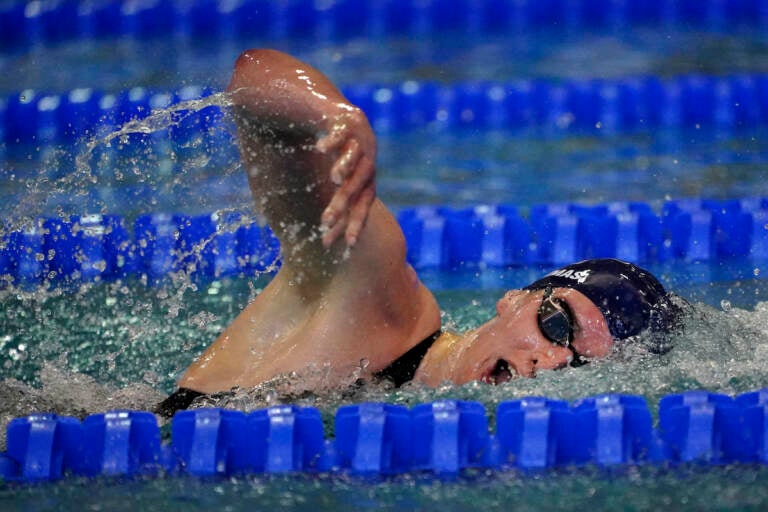In a surprising turn of events, Lia Thomas, the prominent swimmer known for her trailblazing achievements and controversies, has been banned from competing in the 2024 Olympics in Paris. The decision, announced by the International Olympic Committee (IOC), has sparked widespread debate and intense reactions across the sports community and beyond.

Lia Thomas, who gained national attention as a transgender athlete competing in women’s swimming, has been at the center of ongoing discussions about gender, fairness, and inclusion in sports. Her participation in NCAA competitions drew both praise for breaking barriers and criticism over perceived competitive advantages.
The IOC’s decision to ban Thomas from the Paris Olympics stems from updated regulations regarding the participation of transgender athletes. According to the new guidelines, transgender women must demonstrate that their testosterone levels have been below a certain threshold for at least two years prior to the competition. The IOC cited that Thomas did not meet these specific criteria, leading to her disqualification.

The ruling has ignited a firestorm of opinions. Advocates for transgender rights argue that the decision is discriminatory and undermines the progress made towards inclusivity in sports. They emphasize the importance of recognizing and supporting transgender athletes, who often face significant challenges and barriers.
Conversely, some athletes and sports officials argue that the regulations are necessary to ensure fair competition. They contend that biological differences can provide transgender women with advantages in strength and endurance, which could impact the level playing field in women’s sports.
Thomas herself has expressed deep disappointment with the decision. In a statement, she highlighted her dedication to the sport and the rigorous efforts she has undertaken to comply with the rules. “I am devastated by this ruling,” Thomas stated. “My goal has always been to compete at the highest level and to inspire others. I will continue to fight for inclusion and fairness in sports.”
The IOC has acknowledged the complexity of the issue, stressing that their intention is to balance inclusivity with fairness. They have committed to ongoing reviews of their policies to ensure they reflect the latest scientific research and social understanding.
As the 2024 Paris Olympics approach, this decision is likely to remain a focal point of discussions about the evolving nature of sports and the inclusion of transgender athletes. The case of Lia Thomas serves as a critical example of the challenges and controversies that arise when striving to create equitable opportunities for all athletes.
In summary, Lia Thomas’s ban from the 2024 Olympics has highlighted the ongoing debate over transgender participation in sports. With passionate arguments on both sides, this decision underscores the need for continued dialogue and research to navigate the intersection of fairness, competition, and inclusivity in the athletic arena.





